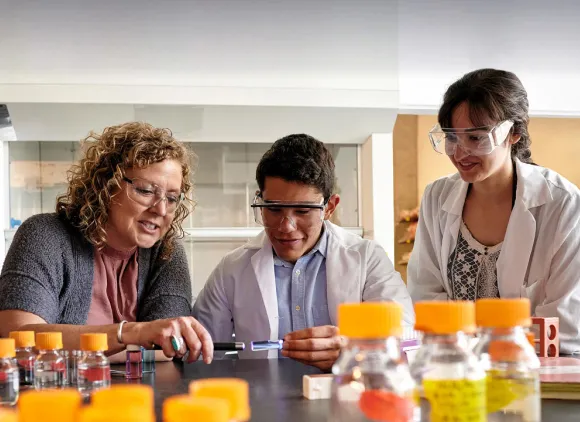The U.S. National Science Foundation Division of Materials Research supports multiple efforts aimed at strengthening and expanding the national STEM workforce by broadening the participation of underrepresented groups in science and engineering at all academic levels.
This page highlights NSF programs focused on building a diverse, highly skilled national workforce in materials science and across the mathematical and physical sciences.
Workforce development and broadening participation programs
Partnerships for Research and Education in Materials (PREM)
This program supports the development of long-term partnerships between academic institutions serving underrepresented groups and division-supported centers and facilities, such as the NSF Materials Research Science and Engineering Centers.
Research Experiences for Undergraduates
These hands-on experiences facilitate access to research and education in materials science and related areas such as condensed matter physics and materials chemistry. Most division-supported centers and facilities offer such opportunities each summer. DMR also supports research experiences for teachers.
Mathematical and Physical Sciences Ascending Postdoctoral Research Fellowships (MPS-Ascend)
This program supports postdoctoral fellows performing impactful research across all fields supported by the NSF Directorate for Mathematical and Physical Sciences (MPS) while broadening the participation of groups that are underrepresented in the mathematical and physical sciences.
Mathematical and Physical Sciences Ascending Faculty Catalyst Awards (MPS-AFCA)
This program supports MPS-Ascend postdoctoral research fellows who transition into tenure-track faculty positions in any scientific area supported by MPS.
Launching Early-Career Academic Pathways
Supports the research of pre-tenure faculty in mathematical and physical sciences, with an emphasis on those at institutions that traditionally do not receive significant NSF funding, such as minority-serving, predominantly undergraduate or R2 institutions.

